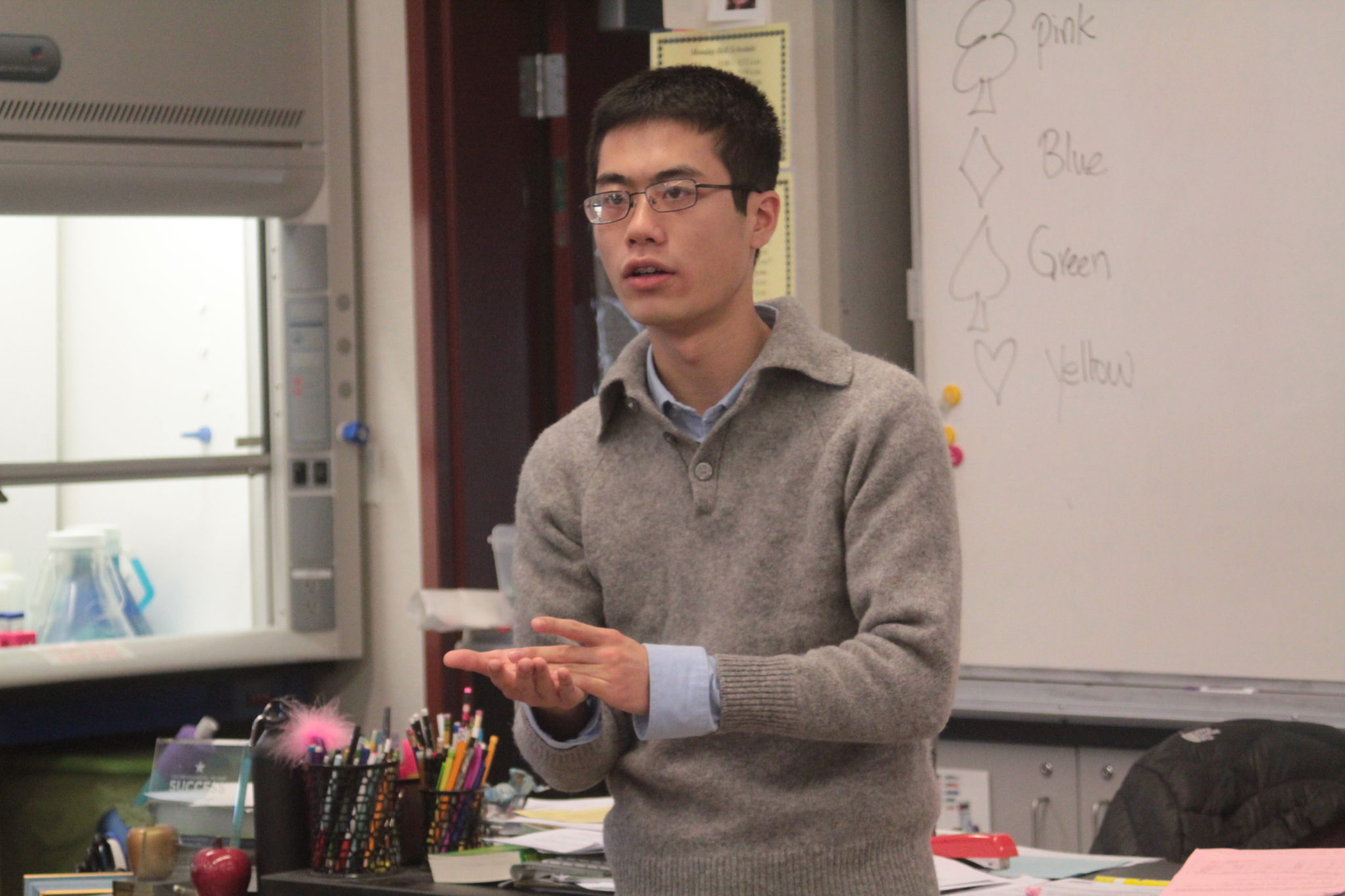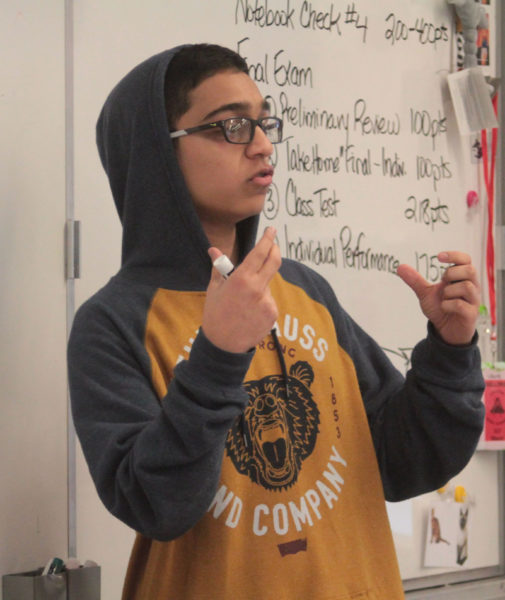

The Aragon Science Club has recently been conducting a series of psychological experiments with student volunteers as test subjects in order to test scientific themes.
Science Club has been performing the experiments so that they can study the results and learn firsthand about psychology.
The most recent experiment tested group conformity by bringing in three fake test subjects, who were actually members of Science Club, and one real subject. Science Club President senior Frank Liu told the subjects that it was a visual perception test, and showed them 10 papers with different line segments on them. He then asked them to name the one that was the same length as the control line. All of the science club members answered first, sometimes giving correct answers and sometimes wrong ones to see if the subject would repeat the answer they had heard other subjects say, even if it was wrong.
“Basically, we’re testing conformity within group settings,” Liu said. “So as an example of conformity, everyone knows that two plus two is equal to four. But if you’re sitting in a group with other people and everyone else says two plus two equals five, the human tendency is that, in order to avoid the discomfort of disagreeing with other people in the group, we’re going to sacrifice what we know to be true in order to say the wrong answer and conform to what everyone else in the group believes.”
The club has had mixed findings in its experiments.
“So far, we have found that there have been some participants who have adhered closely to what they know to be correct, or have not conformed at all,” Liu said. “Other participants [ended up] conforming precisely to what exactly everything the group said.”
Another experiment the club performed tested how people add subliminal messages to words that don’t explicitly express their intended concept. Science Club asked subjects to unscramble lists of words while testing their walking speed to see how it was affected.
Lots of work goes into planning the experiments the club puts on.
“First we need to put out Google forms and try to get information out to the whole school,” said senior Kamal Kolluri, the Science Club vice president. “Sometimes we need to put it in video announcements and live announcements, other times we put it on the School Loop news and we track how many participants we get. We also need to figure out timing and locations [for experiments].”
Science Club hopes to use the results from their most recent experiment to discuss larger scientific themes within the club and the Aragon community.
“We plan on discussing the results within the Science Club, and as a result if we can see that there’s a good amount of conformity, we may also plan on doing a feature on a blog for Science Club for the Aragon community [where] we would discuss the findings of some recent experiments that we’ve done,” Liu said. “The blog post would share significant data found with the whole school.”
On a larger scale, Liu has other hopes for the experiments.
“We do want to help people in general to understand that sometimes it doesn’t hurt to … bring in your own opinion even if it contradicts others, because it may have been right all along,” he said. “In societies where people follow each other like sheep, while discrediting their own opinion, even when they know it to be true, can cause vulnerability within group decision making.”
Kolluri hopes that the experiments being performed are fun and educational experiences for club members and participants.
“I hope a lot of the things we’re doing right now are fun for the people in Science Club, we don’t want any major stress or anything for them,” Kolluri said. “I just want it to be a place where they can learn new science concepts and participate in hands-on learning that we don’t always get in school.”



